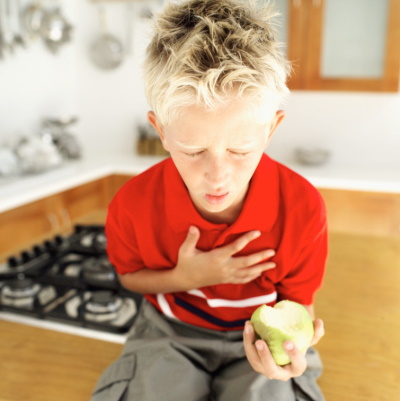Introduction
Every parent's nightmare is the thought of their newborn facing a critical emergency situation. Comprehending cardiopulmonary resuscitation (CPR) methods specifically tailored for newborns can be the difference in between life and fatality in such scenarios. Yet, numerous moms and dads are unaware of the First Aid Sunshine Coast one-of-a-kind protocols associated with doing CPR on babies. This comprehensive guide aims to furnish every moms and dad with crucial understanding and skills relating to CPR on infants, diving into special strategies that can save lives.
CPR on Babies: Special Methods Every Parent Need To Know
Cardiopulmonary resuscitation (CPR) is a lifesaving strategy made use of in emergency situations when somebody's breathing or heartbeat has quit. While the majority of people recognize with grown-up CPR, the techniques differ considerably when it involves infants. The delicate Find First Aid Training in Sunshine Coast nature of a newborn requires certain methods that differ from those utilized on older kids and adults.
Understanding Newborn Composition and Physiology
Before delving into CPR techniques, it's critical to comprehend the anatomy and physiology of a newborn. Newborns have smaller sized lungs, vulnerable ribs, and a different blood circulation system than grownups. Recognizing these distinctions can assist moms and dads perform CPR more effectively.
The Value of Air passage Management
Newborns' air passages are smaller sized and a lot more prone to obstruction; thus, respiratory tract administration is vital during an emergency. Parents must discover how to effectively clear an air passage to ensure efficient breathing restoration.
Recognizing When to Do CPR
One of the first steps in any emergency situation is identifying when CPR is necessary:

- Unresponsiveness: If your infant isn't reacting or moving. No Breathing: If your infant isn't breathing normally or at all. Abnormal Skin Color: A bluish color around lips or face shows absence of oxygen.
Initial Assessment: The DRSABCD Approach
The DRSABCD approach is important for evaluating any type of emergency situation:
D - Danger: Ensure the setting is safe. R - Response: Inspect if the baby responds by carefully drinking them. S - Send for Help: Ask for emergency aid if needed. A - Airway: Open the respiratory tract by turning the head back gently. B - Breathing: Try to find indicators of breathing. C - Compression: If no breathing is identified, commence CPR. D - Defibrillation: Utilize an AED if offered and skilled to do so.The Actions to Do Infant CPR
Performing CPR on a newborn differs greatly from grownups as a result of their dimension and frailty:
1. Positioning
Lay the infant on their back on a firm surface.
2. Opening Airway
Gently tilt the head back slightly to open up the air passage while making certain not to overextend it.
3. Check Breathing
Look for upper body motions and pay attention for breath appears for around 10 seconds.
4. Chest Compressions
Using 2 fingers put just below the nipple area line, push down around 1/3 deepness of their breast (about 1-1.5 inches) at a rate of 100-120 compressions per minute.
5. Rescue Breaths
After every 30 compressions, provide 2 gentle rescue breaths:
- Seal your lips around their mouth and nose, Deliver each breath over one second while observing for breast rise, Repeat until you see signs of life or assistance arrives.
Common Errors Throughout Infant CPR
Even well-intentioned efforts may falter because of usual blunders:
- Applying too much stress during compressions can trigger injury. Failing to ensure proper head tilt may block airflow. Not requiring aid early enough can delay critical care.
Mental Prep work for Emergencies
It's all-natural to really feel panic in emergencies; nonetheless, psychological preparation plays a critical role in successfully performing first aid actions:
- Remain calm; worrying prevents clear thinking. Practice mindfulness strategies before entering parenthood.
FAQs Regarding CPR on Newborns
What should I do if my newborn quits breathing?
If your newborn quits breathing, swiftly evaluate their responsiveness, telephone call for help, inspect their airway, and commence CPR as in-depth above.

How typically needs to I take first aid courses?
It's suggested that moms and dads revitalize their knowledge every two years by taking first aid programs or certain baby CPR training sessions.
Can I make use of an AED on an infant?
Generally speaking, AEDs are not suggested for infants under one year old unless specifically made for such usage; constantly comply with producer's instructions.
Where can I locate first aid courses near me?
You can search online utilizing terms like "first aid training course near me" or examine regional healthcare facilities or recreation center that often use these courses regularly.
How long does a first aid accreditation last?
Typically, the majority of first aid certifications remain legitimate for 3 years before needing revival via refresher courses that include updated practices like DRSABCD protocols.
Is it required to learn mental health first aid as well?
Absolutely! Psychological health first aid gears up parents with abilities essential not only in physical emergency situations yet likewise in determining emotional distress among youngsters and adolescents.
Conclusion
Understanding "CPR on Newborns: Unique Strategies Every Moms And Dad Need To Know" isn't simply regarding getting technical abilities; it's about equipping on your own as a caregiver ready to deal with unanticipated challenges head-on. Whether via dedicated training programs like those offered by different organizations or exercising hands-on strategies with member of the family during workshops-- every initiative counts towards developing confidence in your capability to respond successfully throughout emergency situations including your valuable newborns.
Incorporating this expertise into your parenting toolkit could imply conserving lives when it matters most. So why wait? Sign up today for classes such as "first aid training course," "cpr training," or specialized "infant first aid program" options available nearby-- you never ever understand when you could require them!
